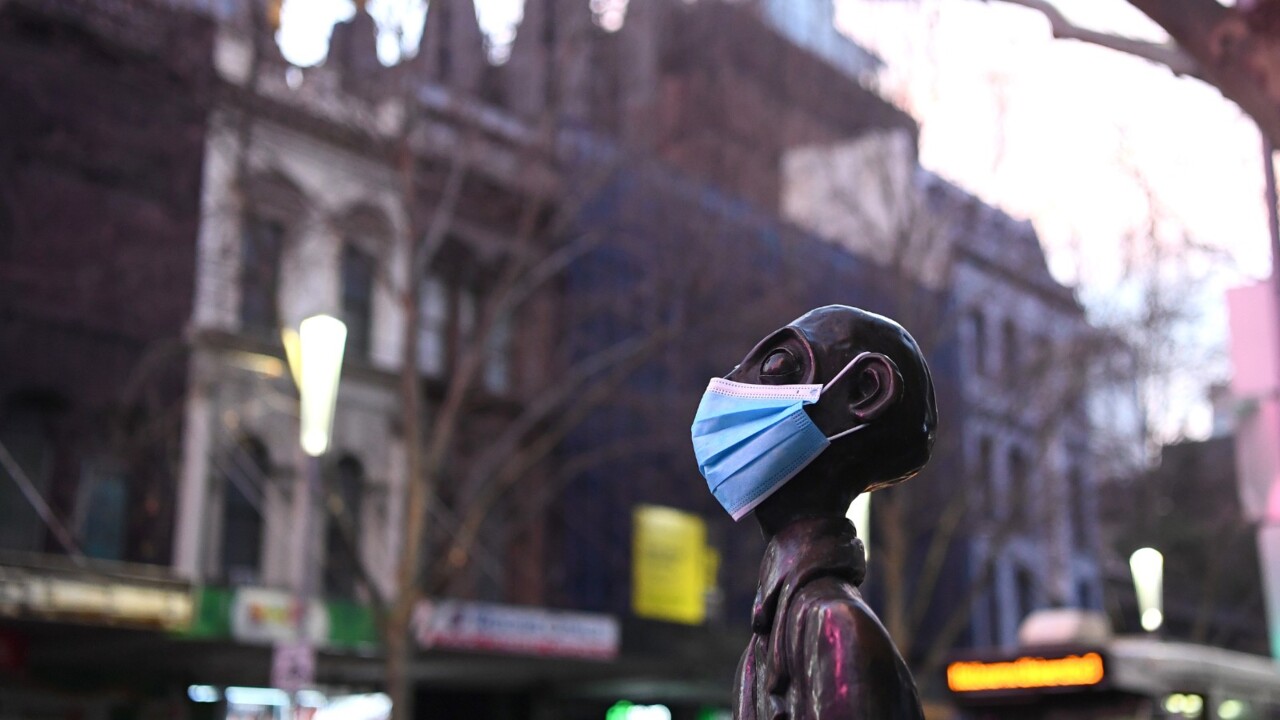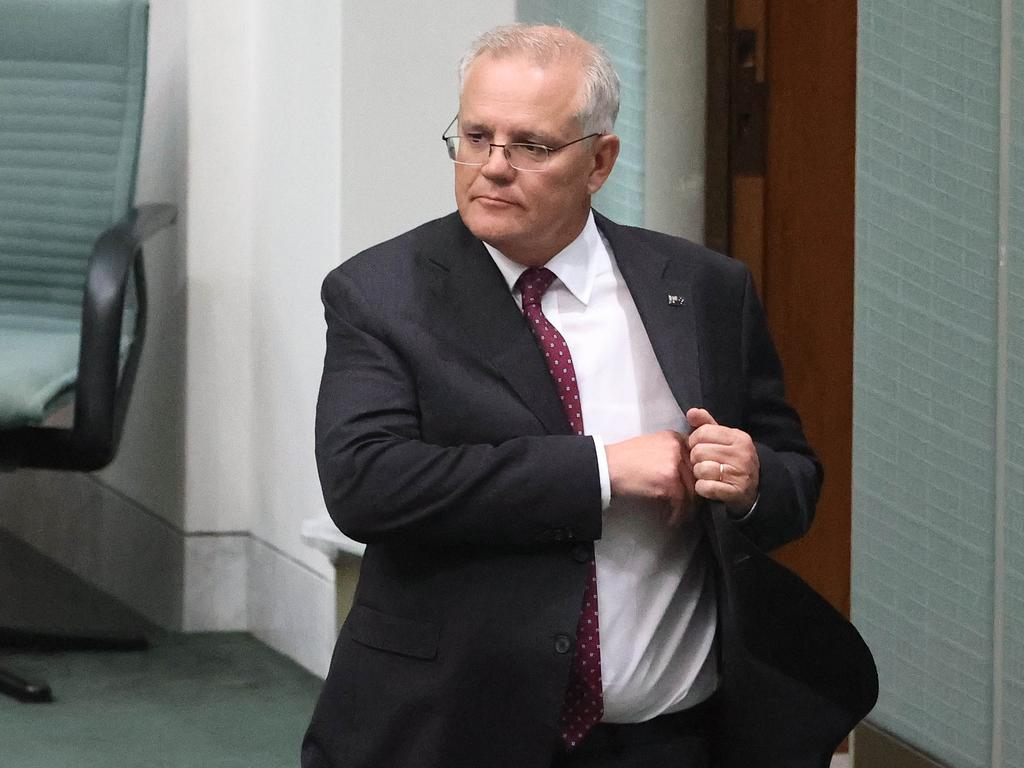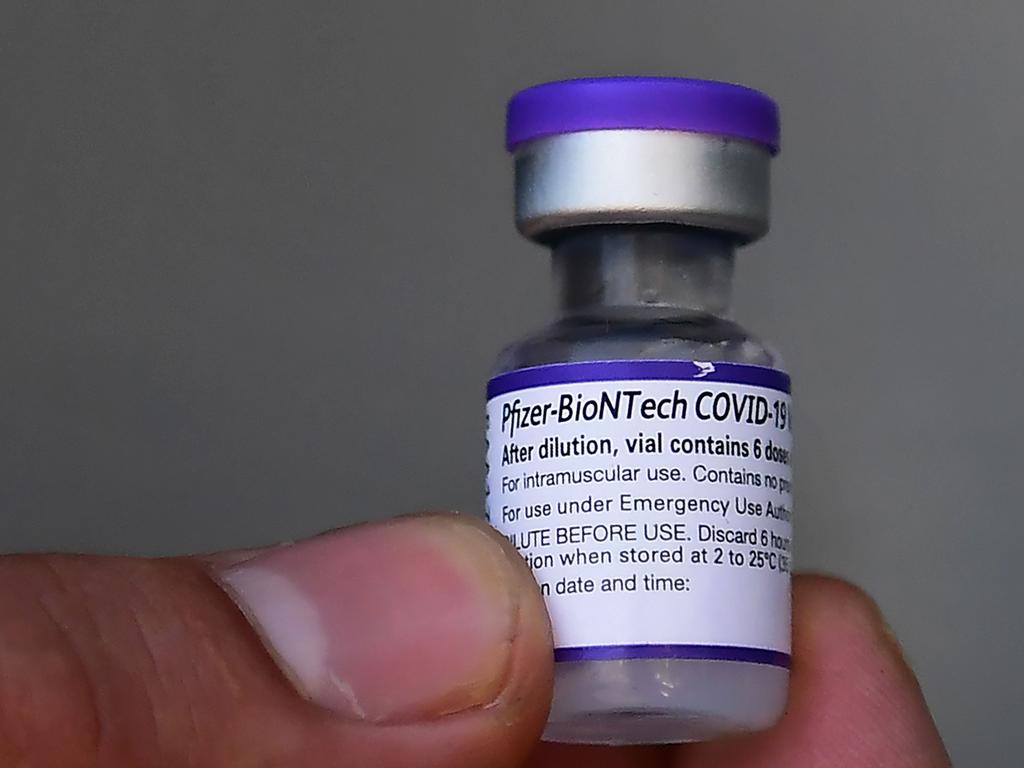Australians now need booster vaccine to be considered ‘up to date’
Major changes have been made to Australia’s vaccine program, with a booster jab now required to be considered ‘up to date’.

Australians will soon require a booster dose of a Covid-19 vaccine to be considered “up to date” with their immunisation as the country shifts away from using the term “fully vaccinated”.
Scott Morrison made the announcement following national cabinet on Thursday, after the federal government’s expert vaccine advisory group, the Australian Technical Advisory Group on Immunisation (ATAGI), updated its guidance.
ATAGI now advises that “all individuals aged 16 years and over are recommended to receive a Covid-19 vaccine booster dose to maintain an ‘up-to-date’ status”, the Prime Minister said in a statement.
“Consistent with current arrangements, this booster dose is recommended from three months after the last primary dose and will now be recommended to be administered within six months of completing the primary schedule,” Mr Morrison said.
“In its advice ATAGI acknowledges that this change in definition of up-to-date status for Covid-19 vaccines may impact the status of an individual’s Covid-19 immunisation certificate, and sufficient time should be provided to support implementation of changes.”
The changes will come into effect by the end of March 2022.

After that time, anyone who does not receive a booster within six months of their second dose will be considered “overdue”.
Boosters are currently not recommended for children aged five to 15 but ATAGI will continue to review the “evidence” on the need for a booster dose in this cohort, Mr Morrison added.
“ATAGI has advised that a booster can be given safely and effectively at any time after six months to become ‘up-to-date’ in the event that the booster had not been received earlier,” he said.
However, children under 16 who are “severely immunocompromised” will require a third dose under the changes.
ATAGI had previously revealed it was considering using the term “up to date” in lieu of “fully vaccinated”, as this would bring the Covid-19 vaccine rollout into line with other vaccination programs, like those administered to children, and would remove confusion for those requiring extra doses, such as immunocompromised people.
“We think the best terminology is actually ‘up to date with vaccination status’, rather than ‘fully vaccinated’,” ATAGI chair Nigel Crawford told the federal parliament’s Covid-19 committee earlier this month.
“That’s a term that we’ve used in the childhood program. So essentially, as you have your children get vaccinated, we say you are ‘up to date with your immunisations’.”

Health officials in the US made the same change in terminology last month.
The change applies to “domestic situations and policy settings” but not overseas travellers.
“The existing arrangements and definition of ‘fully vaccinated’ for the purposes of overseas travel and arrival into Australia will continue to be that individuals must have received a complete two dose primary course of a Therapeutic Goods Administration (TGA) approved or recognised vaccine to be considered ‘fully vaccinated’,” Mr Morrison said.
“People entering Australia will not be required to have had a booster dose of a Covid-19 vaccine.”
Health Minister Greg Hunt said the new advice that everyone aged 16 and older receive a booster dose three months after their primary course would ensure they “maintain the best protection and an ‘up-to-date’ status”.
“Under the new advice, a person is ‘up to date’ if they have completed all the doses recommended for their age and individual health needs,” Mr Hunt said.
“The government places safety above all else, as it has done throughout the pandemic, and will continue to follow the medical advice in protecting Australians. People under 16 years of age will continue to be considered ‘up to date’ after completing their primary course of vaccination, while severely immunocompromised people aged five years and older require a third primary dose to remain up to date.”

Mr Hunt said the Australian government has secured more than 151 million booster doses – enough for nearly six injections for every man, woman and child in the country – for “delivery over the coming year and is well placed to continue to achieve world leading vaccination rates against Covid-19”.
Australians can now receive both Pfizer and AstraZeneca for their booster shots, after the TGA approved AstraZeneca boosters this week.
Previously, only people who had received AstraZeneca for their first and second doses could receive AstraZeneca as a booster.
The changes come even as health authorities acknowledge waning efficacy of the original shots against newer strains of the virus, now predominantly Omicron, which largely escapes the protection offered by the vaccines.
Last month, Pfizer chief executive Albert Bourla said the two doses of the original vaccine offered “very limited protection, if any” against the Omicron variant, but that a third dose offered “reasonable protection against hospitalisation and deaths”.
In its advice, ATAGI conceded that evidence was still coming in on the durability and level of protection offered by boosters.

“Receipt of a primary schedule and a booster dose will provide individual protection from infection and hospitalisation with the Omicron variant, although these effects will wane,” ATAGI said.
“It is known that protection against onward transmission also wanes over several months after completing the primary series for the Delta variant. This may be similar with the Omicron variant. It is expected that a booster will increase protection against symptomatic infection and this should lead to a parallel increase in protection against transmission, therefore providing some indirect protection to the wider population. However, evidence to confirm this, and the duration of protection, is awaited.”
People who have previously recovered from Covid-19 must still get all three shots, ATAGI added.
ATAGI said it was basing this advice on early, non-peer-reviewed data from South Africa that showed natural immunity conferred by Delta or previous variants was “not completely protective” against Omicron.
“The data on Omicron infection and its protection against repeat Omicron infection are not yet available,” ATAGI said.
“As any infection occurring after the November 26, 2021 has the possibility of being due to either Omicron or Delta variant, to ensure a harmonised approach, ATAGI recommends boosting for all individuals with previous Covid-19.”
ATAGI has also decreased the “optional deferral period” for vaccination in people who have had prior infection from six to four months, “due to the increased risk of re-infection with the Omicron variant”.
As of Thursday, just under 94 per cent of Australians over 16 have received two doses of a vaccine and 9.6 million people, or about 37 per cent, have received a third dose, according to federal Health Department figures.
Nearly 78 per cent of children aged 12 to 15 have received two doses, while more than 46 per cent of children aged five to 11 have received their first dose.
According to the TGA, as of February 6 it has received around 2840 reports of suspected adverse events after a booster dose, with nine cases of likely myocarditis and 27 of likely pericarditis.
“So far, reports after booster doses are very rare and there is no indication that these events are more serious than after earlier doses,” the TGA said.






